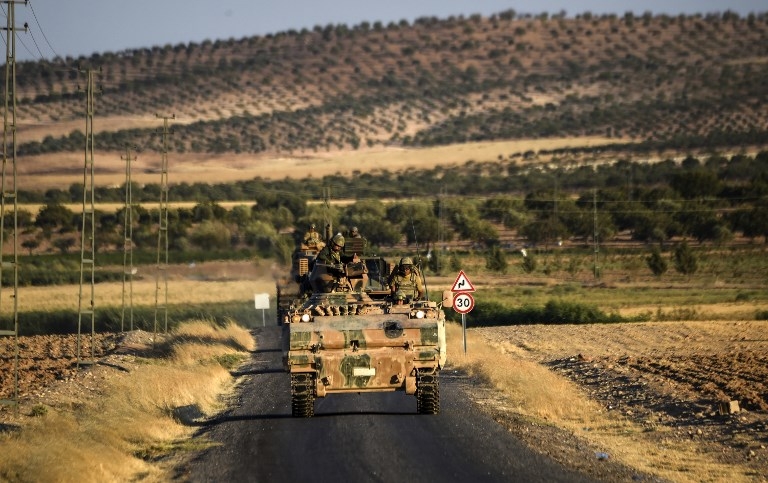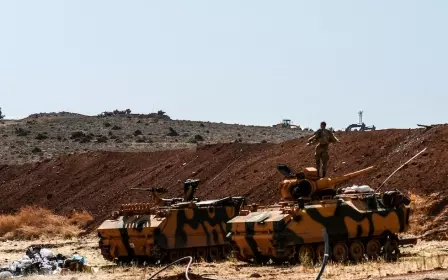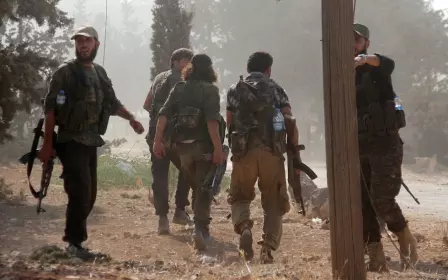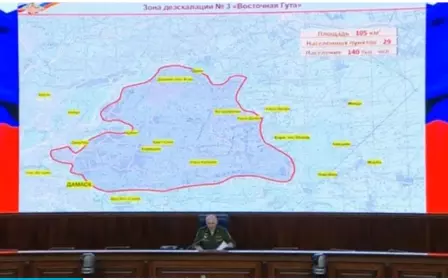Turkey begins mission to create de-escalation zone in Syria

The Turkish army has launched a reconnaissance mission in Syria's largely militant-controlled northwestern Idlib province in a bid to create a de-escalation zone, the military said on Monday.
"The Turkish armed forces began reconnaissance activities on 8 October (Sunday) to establish surveillance posts as part of the operation to be carried out in Idlib province," the armed forces said in a statement.
The Turkish president, Recep Tayyip Erdogan, announced on Saturday the start of the new military operation inside Syria by pro-Ankara Syrian rebels backed by the Turkish army.
The statement was the first confirmation by the Turkish army of involvement inside Syria in the latest operation.
The operation is part of efforts by Turkey, along with Russia and Iran, to set up the zone in line with accords in Astana peace talks aimed at ending the Syrian civil war.
They agreed on four such ceasefire zones in Syria as a prelude to negotiations.
Three zones are already in place - in Eastern Ghouta near Damascus, in central Homs, and in parts of southern Syria - and are being monitored by Russian military police.
Idlib is largely controlled by Hayat Tahrir al-Sham (HTS), a group led by Al-Qaeda's former Syria affiliate, which ousted more moderate rebels in recent months.
The pro-Turkish forces will need to oust HTS members in the area to allow Iranian, Russian and Turkish forces to implement the zone.
There are also reports that the Islamic State group has also mounted an attack on HTS and has already captured several villages in Eastern Hama, in southern Syria.
'We don't go to Syria, Syria comes to us'
The last time Turkish forces were engaged in Syria was in August 2016, when Turkey launched its eight-months long Euphrates Shield operation against militants and Kurdish militia in the northern Syrian province of Aleppo.
"Even if we turn our backs on developments in Syria, can we escape from the results of the crisis?" Erdogan said on Sunday, explaining the reason for Turkey's latest intervention.
"This is why when we don't go to Syria, Syria comes to us," he added.
Although Moscow supports Syrian President Bashar al-Assad while Turkey supports rebels seeking his overthrow, the two countries have worked together intensively to try to end the conflict in the past few months.
Erdogan and his Russian counterpart Vladimir Putin have met several times since a 2016 reconciliation ended a crisis caused by the shooting down of a Russian war plane over Syria.
The conflict in Syria began with widespread protests against the government but has since evolved into a multi-front war that has killed more than 330,000 people.
New MEE newsletter: Jerusalem Dispatch
Sign up to get the latest insights and analysis on Israel-Palestine, alongside Turkey Unpacked and other MEE newsletters
Middle East Eye delivers independent and unrivalled coverage and analysis of the Middle East, North Africa and beyond. To learn more about republishing this content and the associated fees, please fill out this form. More about MEE can be found here.




